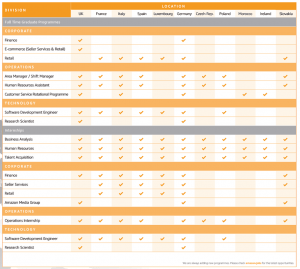How to get the most from a panel or networking event
By UCL Careers, on 28 January 2019
Going to a panel or alumni event will give you the opportunity to meet and hear from a range of speakers. They will be able to provide insight into their industries, and stories from their own careers that might prove to be invaluable when starting your own career.
To get the most out of attending a panel or alumni event, we’ve got a few tips to help you before, during and after the event.
Before
Research the speakers and their organisations. There’s plenty of easy ways to find out about companies and their opportunities, as well as the speakers themselves.
Start with LinkedIn to find out about the speakers and the organisations. On LinkedIn, there’s also a fantastic feature attached to organisations that shows you which alumni from UCL work there. It should prove useful to see which UCL graduates work for the organisation, as well as their roles. You might also be surprised to see the wide range of degree backgrounds that our graduates have within a single organisation!
There’s also Glassdoor, a helpful resource for finding reviews as well as other information such as salaries and even past interview questions.
Lastly, do a search on Google and look through the news to see what has recently been written about the companies in relevant news feeds.
If you’ll be attending an alumni networking event, consider what you wear to event to help you make a great first impression.
During
Take notes during a panel event, whether it’s simply to keep a list of websites or events that speakers recommend, or advice that you’ve found insightful. This may also assist with asking questions, as you might want to follow up with questions on something that was said during the event.
At an alumni event, try to engage in a conversation with an alum. A simple tip is to ask open questions to begin with such as “How did you start working for …”, as this cannot be answered with a short yes or no, and that will help your conversation start flowing quickly.
For any type of event where you can network, always try to connect with people that you are interested in speaking with. Sometimes the connection will be the start of a longer conversation and potentially lead to future opportunities.
After
Within the first couple of days after the event, reach out to your new connections via LinkedIn or email. If they’re a working professional, remember that their time may be limited so be considerate when asking for advice.
What are your next steps? Is there a new jobs board to sign up to, or a networking event worth signing up for? Aim to have two or three simple actions that you plan on following up and set a simple deadline for each action.
As great as a panel or networking event is, the true value often comes once you capitalise on what you have learnt through the event.
Want to attend an exciting panel or networking event? The UCL Careers Themed Weeks give you the chance to meet professionals in a range of exciting sectors such as Charities & NGOs and International Development.
By Jai Shah – Careers Consultant
 Close
Close



















